Creating Web Content That Attracts Attention for Link Building
 In their book Ultimate Guide to Link Building, link-building experts Eric Ward and Garrett French offer straightforward advice to help you earn a higher search engine ranking and increase the authority and popularity of your site. In this edited excerpt, the authors outline different types of content that can attract attention, and links back to your site from other sites.
In their book Ultimate Guide to Link Building, link-building experts Eric Ward and Garrett French offer straightforward advice to help you earn a higher search engine ranking and increase the authority and popularity of your site. In this edited excerpt, the authors outline different types of content that can attract attention, and links back to your site from other sites.
Outreach and submissions only go so far. Sometimes you have to let your content attract links naturally to get the results you want. If you create content that naturally attracts links, it not only saves you time getting them manually, but it also increases engagement on your blog (if it's worth linking to, it's usually worth reading). This is where your content and link-building strategies meet.
How-tos and tutorials
Whether it's a tool, DIY project or anything else, showing people exactly how to do something is extremely helpful.
Quizzes and tests
Testing your reader's knowledge and letting them share their results with their friends is always a great idea.
Timely or seasonal content
Creating the right content at the right time can get you a ton of attention. Creating an infographic on the statistics behind this year's Super Bowl the day after the event is a perfect example. The same goes for seasonal content. Whether it's Valentine's Day, Halloween or Christmas, you can create holiday-themed content that can get a ton of attention over a short period of time (and every year after).
Case studies
Everyone loves a good case study. Real results with real numbers can instantly catch people's attention. If you offer a product or service, this is a no-brainer. If you give out advice, find someone who's used it successfully.
Printable resources
People like hard copies of useful guides. By creating a printable resource with an awesome design, you can almost guarantee a few links will come your way.
Creating contests
Entering contests is great for link building, but creating them is even better. By requiring your participants to write about and link to the contest from their blog, you'll not only get links from them, but their posts will increase the exposure of your contest, thus growing your number of contestants -- and thus, the amount of links you get -- at an exponential rate.
Infographics
People love data, but sometimes it's hard to digest. Creating an infographic on it is a popular way to change that. Not only will it naturally attract links, but you'll also get other bloggers embedding it, which means even more links. Not to mention you have control over the anchor text of the embed code.
Web tools
Creating free online tools, such as specialized calculators, is a fantastic way to attract links. They don't even have to be complex. If it could save me five minutes, then I'll probably use and share it.
Interactive -- content your user can alter, change, or remix
The next big thing in linkbait is interactive content. The reason: because it's flat out cool and few people are doing it.
Review something new
Just like with news, if you're the first to review something, and if it's awesome, your review will get tons of attention. You can also use this to gain favor with the creators of the product or service you're reviewing.
Webinars
Spending a couple of hours every month doing a webinar is a great idea for attracting links over the long term. Set up a page on your website solely dedicated to webinars and as you create new ones, the links will roll in each time.
Surveys
There's generally a two-step process to attracting links with surveys. The first step is asking people to participate. If it's on a particularly interesting topic, reaching out to bloggers, experts and industry news sites to ask to spread the word both on their blog and on social media sites is a great way to attract your first wave of links.
The second step is releasing the results. Combine the release with some nice visualization and a bit of controversy, and you've got yourself a fantastic piece of linkbait.
Google maps mashup
Google Maps is a great tool, and you can use it to attract links if you get it in front of the right audience. A great idea would be to map out all the industry events taking place this year.
Lists
1. People
2. Love
3. Lists.
Why? Because the content is super easy to digest.
Debunking myths
If there's a common misconception in your industry, make sure you let everyone know. If it's big enough, and if your statements are bold enough, you could get some serious attention.
Interviews
Interviewing industry experts will always be a fantastic way to attract links, but getting them to interview is only half the battle. The other half is asking great questions. A good way to find out what questions you should ask is by holding a Q&A with your blog's community, whether it's on Google+, Twitter or any other site. Ask what kinds of questions your readers want to see answered.
For professional and affordable web design and web development, feel free to contact us at Farend, for no obligation consultation.
The above article was originally published by Entrepreneur and can be seen here.
